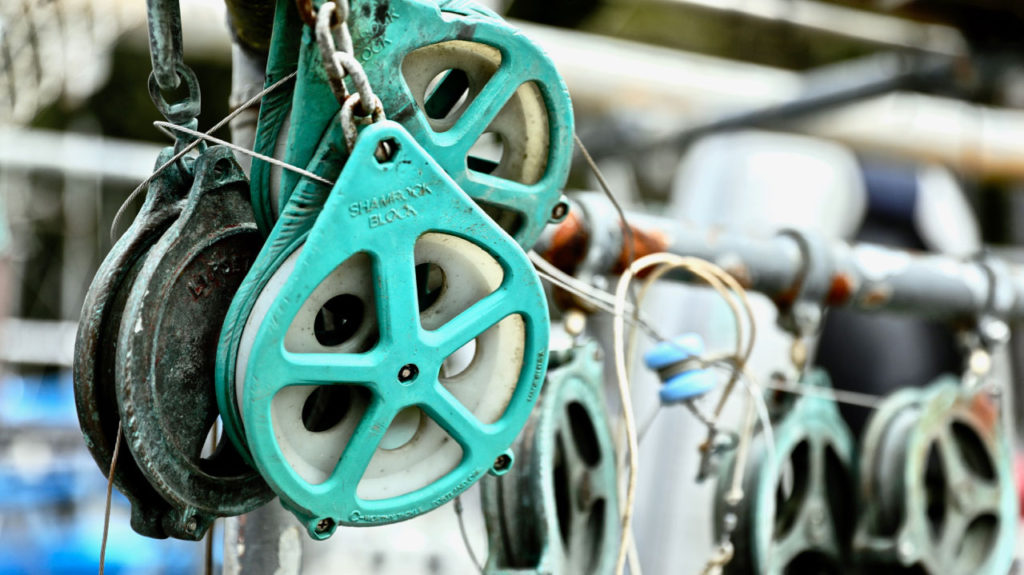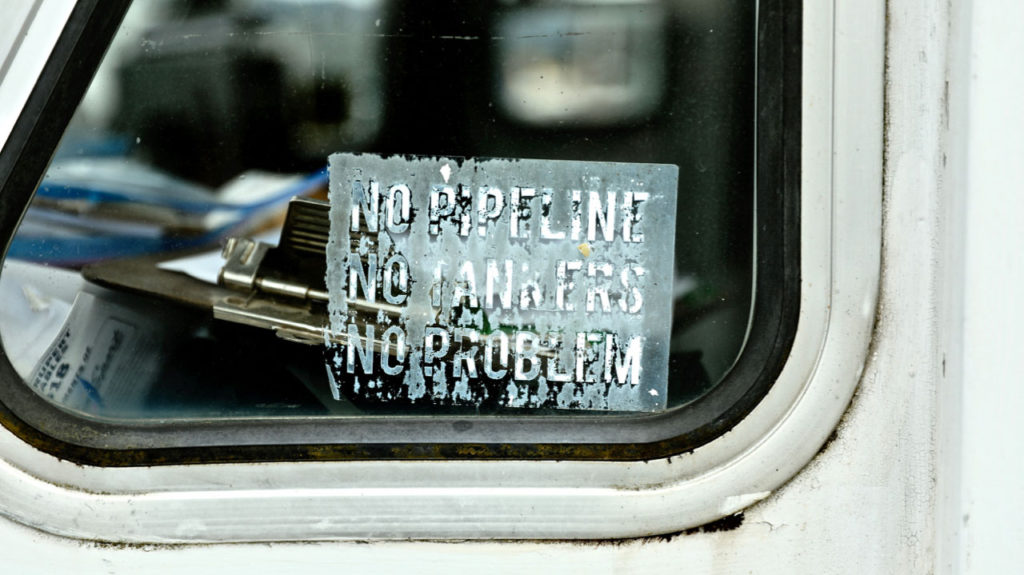The first two parts of West Coast Fisheries Management: For Whose Benefit? took us through the history of the halibut fishery on the West Coast, from being completely unregulated to today’s Individual Transferable Quota (ITQ) system, and the ramifications this has had on that industry and its fleet.
By the end of Part III, the topics had veered into British Columbia (BC) salmon fisheries and the mismanagement of those fisheries on the part of Fisheries and Oceans Canada (the DFO), as the two former fishermen we interviewed see it.
Here, we continue our conversation with those two former fishermen, Phil Parish

Disease, Poison and Hijacking
When asked what it would look like were things being done right as far as salmon conservation goes, Phil says unequivocally, “We wouldn’t have any fish farms on the coast.” As he told us, our farmed fish stock
“The DFO has done everything in their power, as far as I’m concerned, to make sure that hasn’t happened. They have gone out of their way to destroy fish.”
Despite research, even research funded in part by the DFO itself, that shows Norwegian salmon diseases are now present and are coming from fish farms on the BC Coast, they have not taken it upon themselves to research the impacts on wild stocks and have allowed the industry to block access to their fish for the purposes of disease study. Why?
Phil and Henry believe the DFO has been hijacked by corporate interests from outside Canada. In particular, they believe that foreign oil industry lobbyists have taken control of much of the decision-making at the DFO as it regards wild salmon here in British Columbia. Is there evidence of this? Circumstantially, they believe there is.
New salmon farm rules that the provincial government says will come into effect in 2022 may go some way toward mitigating these concerns, but that remains to be seen.
Subsidizing Failure
Regardless, Phil contends that open-pen salmon farming was already a failed industry even before it was brought to Canada, not least because of the cost of feed, antibiotics
Phil sees this as a long-term goal of the oil industry. He believes they have lobbyists in position to keep subsidies flowing from the Federal government in an effort to keep salmon farms functioning. As he sees it, these farms will devastate our wild salmon to the point that they will no longer be an obstacle to any oil industry projects.
Now, he says, they are saying they will close off small sections where fishermen won’t fish and the whales can feed. But he has yet to hear of anyone who is herding whales into a specific area…
Having worked with many fishing organizations in his long career, Phil says he has never once heard any of them say they want to catch the last fish.
They all have a prime objective of the conservation of the fisheries so they could continue in perpetuity. However, he says, “The DFO has done everything in their power, as far as I’m concerned, to make sure that hasn’t happened. They have gone out of their way to destroy fish. They’re still doing it right now. They are kowtowing to the corporate interests of the oil companies that want to bring pipelines down the river systems and spoil the rearing grounds, like the mouth of the Skeena [River]. They suggested there should be an LNG (liquid natural gas) plant at the mouth of the Skeena, right on top of the rearing grounds. That’s the end of the Skeena fishery if they do that.”
Pointing Fingers
Another example he brings up is the lack of food orcas have in the Strait of Georgia. He says there has been a creel fishery—creels are pots or cages that are placed on the seabed to capture bottom-dwellers, such as lobster, crab and sea snails (whelk)—going on there for years, which takes out the starting point of the food chain, and yet people wonder why the whales have nothing to eat.
Now, he says, they are saying they will close off small sections where fishermen won’t fish and the whales can feed. But he has yet to hear of anyone who is herding whales into a specific area to feed, or telling them where to go. Not to mention, he says some of the protected areas they have set up on Vancouver Island for this purpose have been “polluted forever.”
Ultimately, there has been “nothing alive there for eons. Yet,” he asks, “this is where the whales are supposed to eat? It just doesn’t make sense.”
He tells us, without evidence that we could find to corroborate, that there are energy companies that want to privatize the bottom of the ocean in British Columbia’s Central Coast. He says the local First Nations of the Central Coast have fished and managed those areas for over 12,000 years and those traditional areas have done well, until the last 100 years when corporate interests have come in.
“Why do these corporate interests,” he asks, “want the title to the sea floor?
They are saying they want to put in wind turbines in these very heavily commercially fished areas. This would then exclude those commercial fishermen from these areas.” He accuses the wind farms proposing to take control of the sea-bed of being backed by big oil and that they are simply looking to, “stick their finger in there to be able to drill for oil and gas at some point in the future.”
Finding Fault
He tells us about a time when the DFO went into the Dixon Entrance—the strait between the North Coast of Haida Gwaii and Alaska, to monitor the fishing fleet there—and there was a foreign fishing vessel in Canadian waters. Yet, when they called the DFO in Ottawa to report it and see what course of action to take, they were told that the area is in contention and not to bother the foreign vessel.

“The DFO is going to give away part of Canada,” he asks, “to the Americans so that they can drill for oil in the Dixon Entrance? I would think the DFO is looking after some corporate interests. They are not looking after Canada’s interests; they haven’t looked after our fish; and I don’t see them getting’ any better at it. Do you, Henry?”
Henry agreed that, at least in the past few years, the DFO has not shown themselves to be looking after Canadian interests.
Welcome to the Machine
And then they tell us about Kinder Morgan, a Texas-based energy infrastructure company specializing in owning and controlling oil and gas pipelines and terminals. Until they sold the asset to the Government of Canada last year, they were the owners and operators of the Trans Mountain pipeline.
The pipeline currently moves 300,000 barrels of Alberta tar sands product per day and Kinder Morgan had plans to expand the pipeline to handle 890,000 barrels per day. This expansion was vociferously opposed by many in British Columbia, including the provincial government. Many people are fearful about the added danger to their coasts and forests, rivers and streams in the form of potential oil spills that this expansion would bring.
From their perspective, the DFO has a long history of acting in the interests of big, often foreign, business and against local communities, fish stocks and the health of the ocean.
This opposition resulted in delaying the expansion construction to the point where Kinder Morgan threatened to pull completely out of the expansion project. This threat led Justin Trudeau’s federal government to purchase the existing pipeline and expansion project from Kinder Morgan for $4.5 billion in the summer of 2018.
Above the Law
Just last year, in 2017, Kinder Morgan was busted for illegally placing plastic snow fencing mats on the bottom of seven streams here in BC and one in Alberta. They were placing these deterrent mats, weighed down with rocks, in salmon spawning beds along routes where they’d planned to build their new Trans Mountain pipeline, in an effort to stop the salmon from spawning there. They did not seek prior approval to do so, and the company said their plan was to put the mats at 26 locations.
Phil told us if we were to go into one of these spawning beds with just a shovel we would get a ticket from the DFO and a hefty fine—no matter systematically trying to cover 26 of them with plastic fencing. But the DFO did nothing to Kinder Morgan. In fact, it was the National Energy Board (NEB) that “issued a stern warning” to the company after an activist noticed on the company blog that the company had written about placing the mats in the streams.
Under the pressure from the NEB, Kinder Morgan reluctantly halted placing new mats. Ironically, the DFO was nowhere to be seen. No tickets. No fines.
A Complete Loss of Confidence
Phil and Henry are not surprised. From their perspective, the DFO has a long history of acting in the interests of big, often foreign, business and against local communities, fish stocks and the health of the ocean: ITQs have put all the available fish into the hands of the few; salmon farms have spent millions of taxpayer dollars in an effort that only damages the natural environment; catch-and-release has wasted far more fish then it has saved.
Now, they also suspect that big oil and gas simply want to get rid of the fish in order to remove what to them is just one more obstacle to ever more wealth accumulation—climate change and damaged ecosystems be damned.
Regardless of whether or not what Phil and Henry believe to be occurring is actually true, it should be a major concern for the Government of Canada that well-respected members of any coastal Canadian community see the DFO as being puppets in a concerted effort to destroy the very fisheries and oceans it is supposed to manage.


